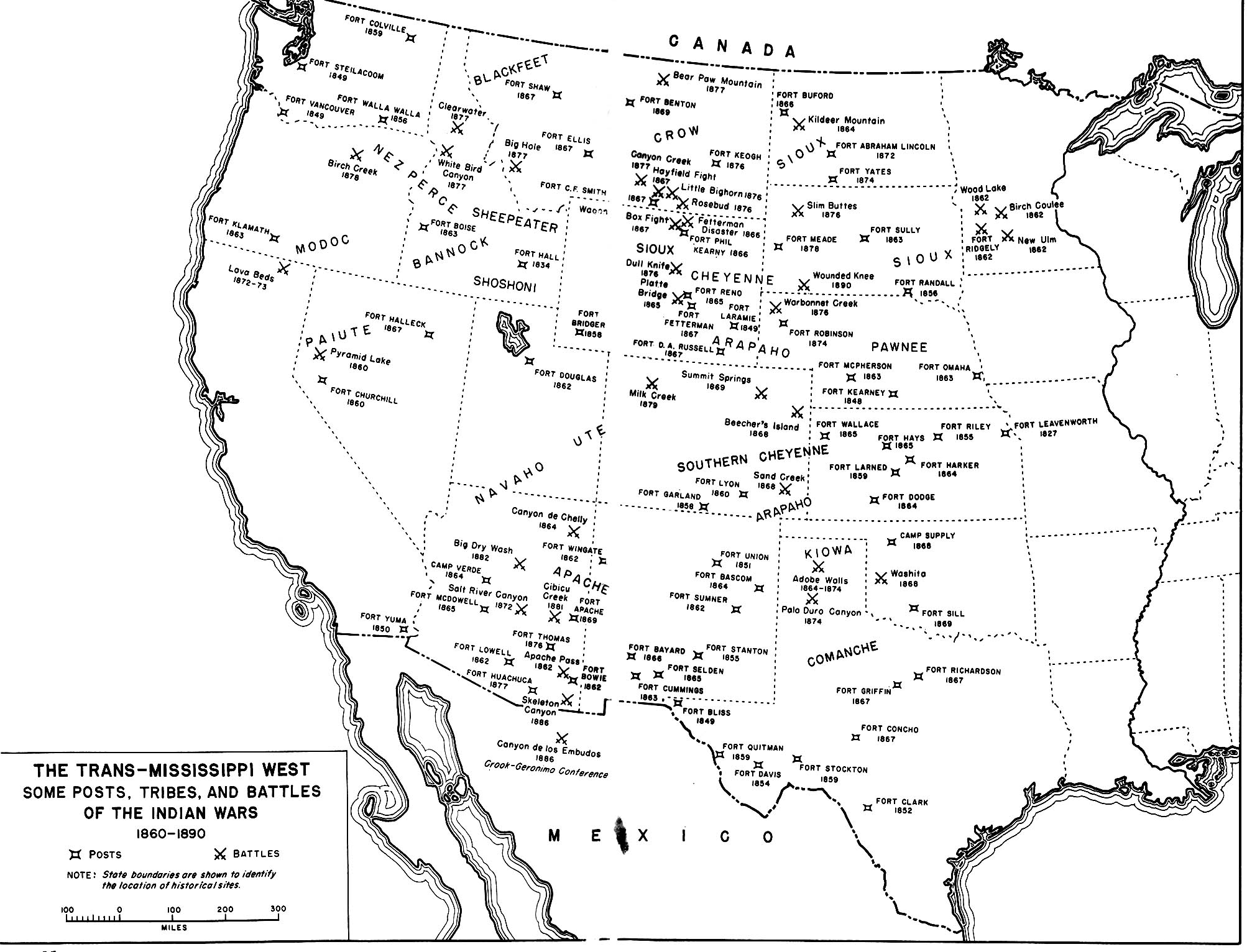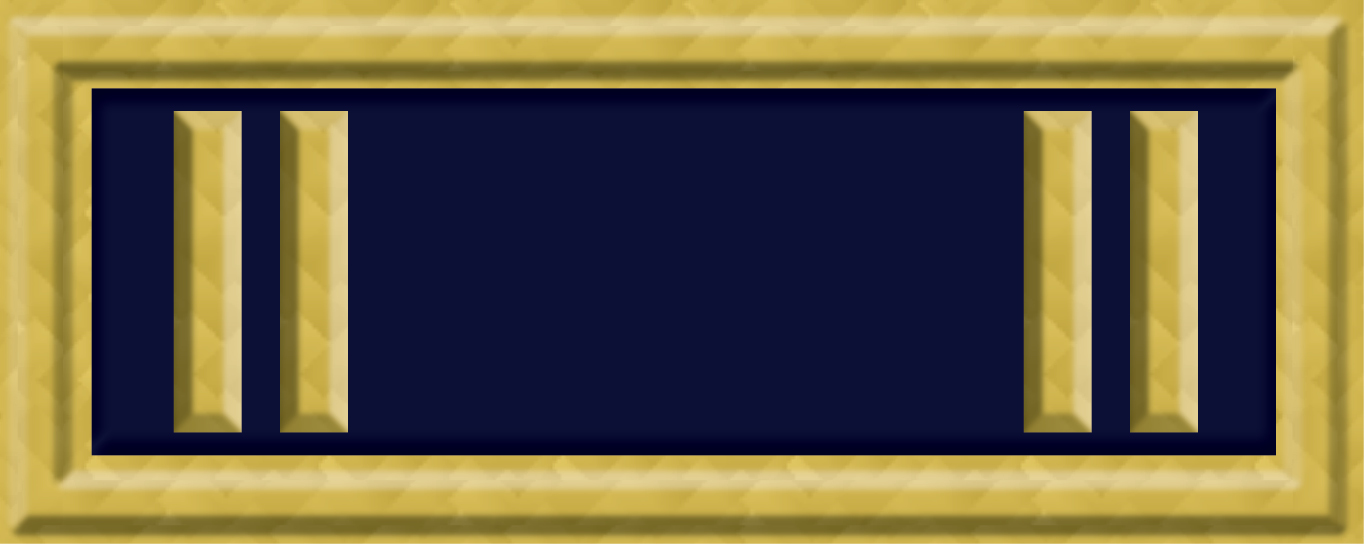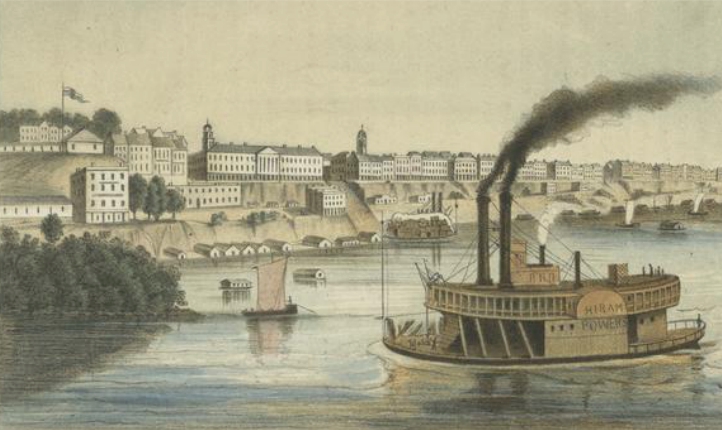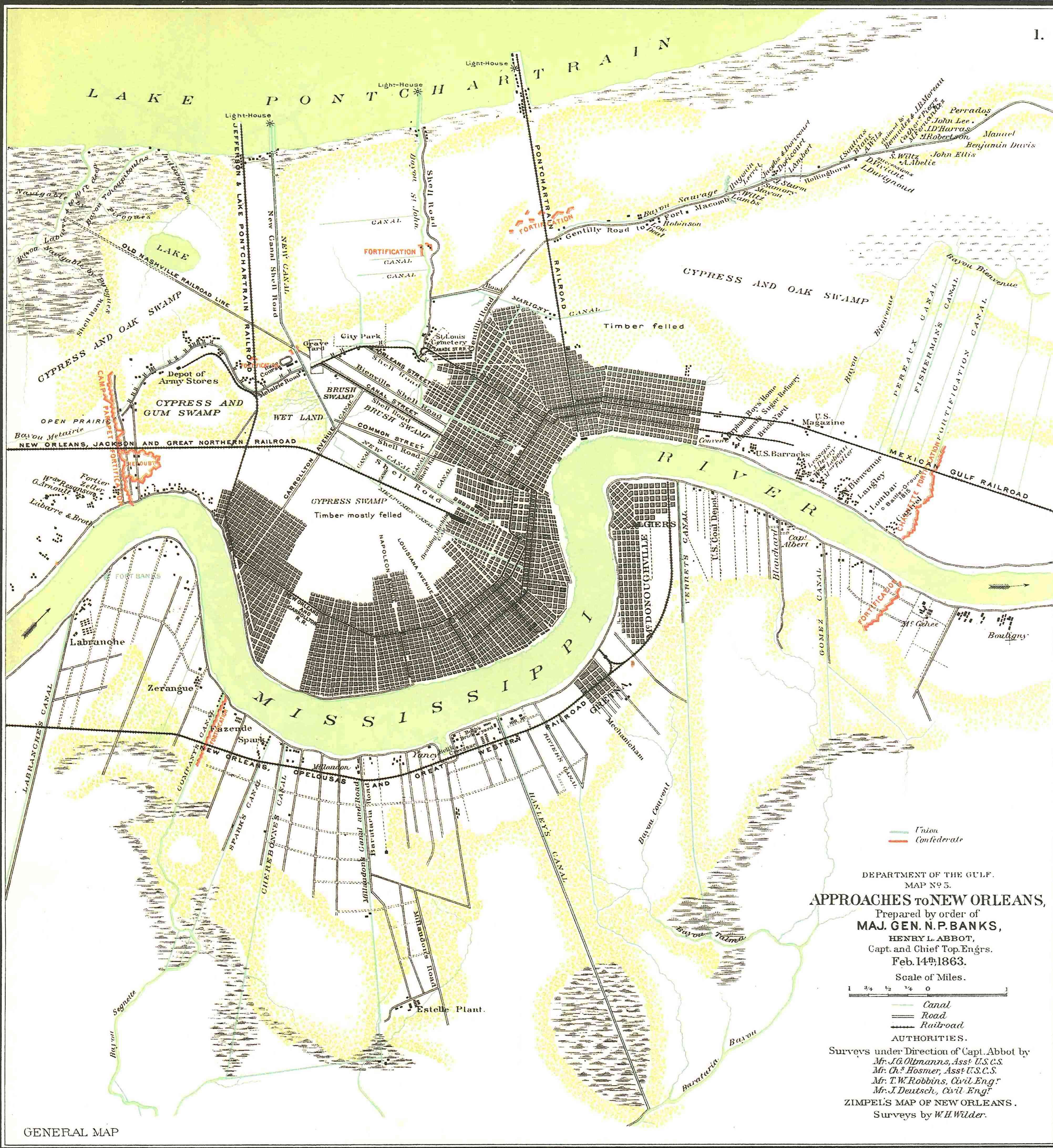|
Siege Of Port Hudson
The siege of Port Hudson, Louisiana, (May 22 – July 9, 1863) was the final engagement in the Union campaign to recapture the Mississippi River in the American Civil War. While Union General Ulysses Grant was besieging Vicksburg upriver, General Nathaniel Banks was ordered to capture the lower Mississippi Confederate stronghold of Port Hudson, in order to go to Grant's aid. When his assault failed, Banks settled into a 48-day siege, the longest in US military history up to that point. A second attack also failed, and it was only after the fall of Vicksburg that the Confederate commander, General Franklin Gardner surrendered the port. The Union gained control of the river and navigation from the Gulf of Mexico through the Deep South and to the river's upper reaches. Background Strategy and politics on the Mississippi From the time the American Civil War started in April 1861, both the U.S. and Confederates made controlling the Mississippi River a major part of their strat ... [...More Info...] [...Related Items...] OR: [Wikipedia] [Google] [Baidu] |
American Civil War
The American Civil War (April 12, 1861 – May 26, 1865; also known by other names) was a civil war in the United States. It was fought between the Union ("the North") and the Confederacy ("the South"), the latter formed by states that had seceded. The central cause of the war was the dispute over whether slavery would be permitted to expand into the western territories, leading to more slave states, or be prevented from doing so, which was widely believed would place slavery on a course of ultimate extinction. Decades of political controversy over slavery were brought to a head by the victory in the 1860 U.S. presidential election of Abraham Lincoln, who opposed slavery's expansion into the west. An initial seven southern slave states responded to Lincoln's victory by seceding from the United States and, in 1861, forming the Confederacy. The Confederacy seized U.S. forts and other federal assets within their borders. Led by Confederate President Jefferson ... [...More Info...] [...Related Items...] OR: [Wikipedia] [Google] [Baidu] |
Trans-Mississippi
Trans-Mississippi was a common name of the geographic area west of the Mississippi River during the 19th century. The area included Arkansas, Louisiana, Missouri, Texas, Indian Territory (now Oklahoma), and many other territories. The term "Trans-Mississippi" was historically used to refer to any land "across the Mississippi" (or the entire western two-thirds of the United States). In 1898, a Trans-Mississippi Exposition was held at Kountze Park (Omaha, Nebraska). Legacy The postage stamps of the Trans-Mississippi Exposition Issue are considered some of the most beautiful stamps ever issued by the United States, and a complete set of the "Trans-Miss" is highly prized. In 1998, a set of stamps using designs derived from the original issue was issued to commemorate its 100th anniversary.{{Citation needed, date=September 2016 See also * Trans-Mississippi Department * Trans-Pecos * Manifest Destiny Manifest destiny was a cultural belief in the 19th century in the Unite ... [...More Info...] [...Related Items...] OR: [Wikipedia] [Google] [Baidu] |
Baton Rouge, Louisiana
Baton Rouge ( ; ) is a city in and the capital of the U.S. state of Louisiana. Located the eastern bank of the Mississippi River, it is the parish seat of East Baton Rouge Parish, Louisiana's most populous parish—the equivalent of counties in other U.S. states. Since 2020, it has been the 99th-most-populous city in the United States and the second-largest city in Louisiana, after New Orleans; Baton Rouge is the 18th-most-populous state capital. According to the 2020 United States census, the city-proper had a population of 227,470; its consolidated population was 456,781 in 2020. The city is the center of the Greater Baton Rouge area—Louisiana's second-largest metropolitan area—with a population of 870,569 as of 2020, up from 802,484 in 2010. The Baton Rouge area owes its historical importance to its strategic site upon the Istrouma Bluff, the first natural bluff upriver from the Mississippi River Delta at the Gulf of Mexico. This allowed development of a busin ... [...More Info...] [...Related Items...] OR: [Wikipedia] [Google] [Baidu] |
Jefferson Davis
Jefferson F. Davis (June 3, 1808December 6, 1889) was an American politician who served as the president of the Confederate States from 1861 to 1865. He represented Mississippi in the United States Senate and the House of Representatives as a member of the Democratic Party before the American Civil War. He had previously served as the United States Secretary of War from 1853 to 1857 under President Franklin Pierce. Davis, the youngest of ten children, was born in Fairview, Kentucky. He grew up in Wilkinson County, Mississippi, and also lived in Louisiana. His eldest brother Joseph Emory Davis secured the younger Davis's appointment to the United States Military Academy. After graduating, Jefferson Davis served six years as a lieutenant in the United States Army. He fought in the Mexican–American War (1846–1848) as the colonel of a volunteer regiment. Before the American Civil War, he operated in Mississippi a large cotton plantation which his brother Joseph had giv ... [...More Info...] [...Related Items...] OR: [Wikipedia] [Google] [Baidu] |
Earl Van Dorn
Earl Van Dorn (September 17, 1820May 7, 1863) started his military career as a United States Army officer but joined Confederate forces in 1861 after the Civil War broke out. He was a major general when he was killed in a private conflict. A great-nephew of Andrew Jackson, he received an appointment to West Point Academy, graduating in 1842. He was notable for fighting with distinction during the Mexican–American War and against several tribes of Native Americans in the West. In the American Civil War, he sided with the Confederacy, fighting in the Western Theater as a major general. He was appointed commander of the Trans-Mississippi District. At the Battle of Pea Ridge, Arkansas, in early March 1862, he was defeated by a smaller Union force. He had abandoned his supply wagons for the sake of speed, leaving his men under-equipped in cold weather. At the Second Battle of Corinth in October 1862, he was again defeated through a failure of reconnaissance, and was removed fro ... [...More Info...] [...Related Items...] OR: [Wikipedia] [Google] [Baidu] |
Mansfield Lovell
Mansfield Lovell (October 20, 1822 – June 1, 1884) was a major general in the Confederate States Army during the American Civil War. As military commander of New Orleans when the city unexpectedly fell to the Union Navy in 1862, Lovell was fiercely criticized by local citizens for failing to predict a naval invasion. The Confederate government also heaped blame on him, to deflect attention from their own error in leaving so few troops to defend the city. A Court of Enquiry later cleared him of charges of incompetence, but his reputation never recovered. Early life Lovell was born in the District of Columbia. His father was Joseph Lovell, the eighth Surgeon General of the United States Army. His great grandfather, James Lovell, was an active member of the Whig organization in Boston before the American Revolution, and was a member of the Continental Congress from 1777 to 1782. He was one of the prime movers in the scheme to supplant General George Washington as commander-in ... [...More Info...] [...Related Items...] OR: [Wikipedia] [Google] [Baidu] |
Major General (CSA)
The general officers of the Confederate States Army (CSA) were the senior military leaders of the Confederacy during the American Civil War of 1861–1865. They were often former officers from the United States Army (the regular army) prior to the Civil War, while others were given the rank based on merit or when necessity demanded. Most Confederate generals needed confirmation from the Confederate Congress, much like prospective generals in the modern U.S. armed forces. Like all of the Confederacy's military forces, these generals answered to their civilian leadership, in particular Jefferson Davis, the South's president and therefore commander-in-chief of the Army, Navy, and the Marines of the Confederate States. History Much of the design of the Confederate States Army was based on the structure and customs of the U.S. Army when the Confederate Congress established their War Department on February 21, 1861.Eicher, p. 23. The Confederate Army was composed of three par ... [...More Info...] [...Related Items...] OR: [Wikipedia] [Google] [Baidu] |
Pierre G
Pierre is a masculine given name. It is a French form of the name Peter. Pierre originally meant "rock" or "stone" in French (derived from the Greek word πέτρος (''petros'') meaning "stone, rock", via Latin "petra"). It is a translation of Aramaic כיפא (''Kefa),'' the nickname Jesus gave to apostle Simon Bar-Jona, referred in English as Saint Peter. Pierre is also found as a surname. People with the given name * Abbé Pierre, Henri Marie Joseph Grouès (1912–2007), French Catholic priest who founded the Emmaus Movement * Monsieur Pierre, Pierre Jean Philippe Zurcher-Margolle (c. 1890–1963), French ballroom dancer and dance teacher * Pierre (footballer), Lucas Pierre Santos Oliveira (born 1982), Brazilian footballer * Pierre, Baron of Beauvau (c. 1380–1453) * Pierre, Duke of Penthièvre (1845–1919) * Pierre, marquis de Fayet (died 1737), French naval commander and Governor General of Saint-Domingue * Prince Pierre, Duke of Valentinois (1895–1964), father ... [...More Info...] [...Related Items...] OR: [Wikipedia] [Google] [Baidu] |
Battle Of Memphis
The First Battle of Memphis was a naval battle fought on the Mississippi River immediately North of the city of Memphis, Tennessee on June 6, 1862, during the American Civil War. The engagement was witnessed by many of the citizens of Memphis. It resulted in a crushing defeat for the Confederate forces, and marked the virtual eradication of a Confederate naval presence on the river. Despite the lopsided outcome, the Union Army failed to grasp its strategic significance. Its primary historical importance is that it was the last time civilians with no prior military experience were permitted to command ships in combat. As such, it is a milestone in the development of professionalism in the United States Navy. Background The defending Confederates closely matched the advancing federal force in raw numbers, with eight rebel vessels opposing nine Union gunboats and rams, but the fighting qualities of the former were far inferior. Each was armed with only one or two guns, of a ligh ... [...More Info...] [...Related Items...] OR: [Wikipedia] [Google] [Baidu] |
Memphis, Tennessee
Memphis is a city in the U.S. state of Tennessee. It is the County seat, seat of Shelby County, Tennessee, Shelby County in the southwest part of the state; it is situated along the Mississippi River. With a population of 633,104 at the 2020 United States census, 2020 U.S. census, Memphis is the List of municipalities in Tennessee, second-most populous city in Tennessee, after Nashville, Tennessee, Nashville. Memphis is the fifth-most populous city in the Southeastern United States, Southeast, the nation's List of United States cities by population, 28th-largest overall, as well as the largest city bordering the Mississippi River. The Memphis metropolitan area includes West Tennessee and the greater Mid-South (region), Mid-South region, which includes portions of neighboring Arkansas, Mississippi and the Missouri Bootheel. One of the more historic and culturally significant cities of the Southern United States, Memphis has a wide variety of landscapes and List of neighborhoods in ... [...More Info...] [...Related Items...] OR: [Wikipedia] [Google] [Baidu] |
Charles Henry Davis
Charles Henry Davis ( – ) was an American rear admiral of the United States Navy. While working for the U.S. Coast Survey, he researched tides and currents, and located an uncharted shoal that had caused wrecks off of the coast of New York. During the American Civil War, he commanded the Western Gunboat Flotilla, where he won an important engagement in the First Battle of Memphis before capturing enemy supplies on a successful expedition up the Yazoo River. Early life Davis was born in Boston, Massachusetts.Eicher, p. 201. He attended the Boston Latin School and entered Harvard College in 1821, but left after two years when he was appointed as a midshipman in the United States Navy on August 12, 1823. Between 1827 and 1828, he served onboard the frigate in the Pacific. In 1829, he was promoted to passed midshipman. From 1830 to 1833, he served on the sloop . In 1834, he was promoted to lieutenant and assigned to the . In 1840 to 1841, he served onboard the s ... [...More Info...] [...Related Items...] OR: [Wikipedia] [Google] [Baidu] |
Capture Of New Orleans
The capture of New Orleans (April 25 – May 1, 1862) during the American Civil War was a turning point in the war, which precipitated the capture of the Mississippi River. Having fought past Forts Jackson and St. Philip, the Union was unopposed in its capture of the city itself. Many residents resented the controversial and confrontational administration of the city by its U.S. Army military governor, who caused lasting resentment. This capture of the largest Confederate city was a major turning point and an event of international importance. It also caught many Confederate generals by surprise who planned for a attack from the north instead of from the gulf of Mexico. Background The history of New Orleans contrasts significantly with the histories of other cities that were included in the Confederate States of America. Because it was founded by the French and controlled by Spain for a time, New Orleans had a population who were mostly Catholic, and who had create ... [...More Info...] [...Related Items...] OR: [Wikipedia] [Google] [Baidu] |








